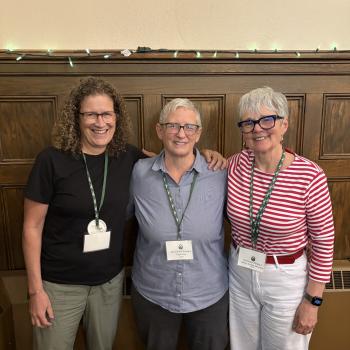On July 29, our local school board voted to fire its superintendent. Like others who follow our school district closely, including a good many educators and parents, I’d been hoping the board would take this action, especially after it was announced in May that our schools had a budget shortfall of nearly $11 million, thanks in some part to his leadership.
Yet sitting in the school board room and hearing the announcement of his firing, I mostly felt sad. I know I’m not alone in grieving what has unfolded in our district over the last several years.

What Got Us Here
The superintendent’s hiring in spring 2022 should not have happened. A school board dominated by alt-right members elected to “save our schools” from presumed leftist indoctrination had fired a well-liked leader months earlier, without cause.
After bobbling a search, that board chose a new superintendent over several much more qualified candidates, including a gifted local principal who had already served our schools faithfully and well—but who was deemed the “progressive’s choice,” despite his well-established conservative bona fides. Seems like owning the (presumed) libs decided our district’s fate.
The board instead chose as their new leader someone who’d been forced to resign four years earlier from a nearby district because of racist tweets, and then was put on leave in another district for unknown reasons. (Those reasons became known this spring, when it was reported the superintendent had shielded a now-convicted predator teaching in his district.)
The Definition of Privilege
Our community had already been wrangling with what it meant to have privilege—and what it meant to protect marginalized populations—when the new superintendent was hired. In a lot of ways, his work as someone with extraordinary privilege in the district, has exemplified this tension. After all, he landed a job for which he wasn’t qualified, then was awarded a lucrative contract by the board who hired him. He became one of the top-paid superintendents in Oregon, despite Newberg being the state’s 25th largest district.
This is a man falling up, the very definition of privilege.
When the district began to unravel, the superintendent went on Family Medical Leave, stopped coming to board meetings, and will continue to draw a salary for the next year: his contract dictates that he has to have a one-year warning about termination. This means he can continue being paid, further draining an already strapped district who has had to let teachers go, consolidate classrooms, and scramble to serve students this fall.
Our community’s children will suffer most, the central reason why his unwillingness to resign, and the terms of his firing, are so devastating.
Stories like Newberg’s are happening in other districts across the U.S., where hiring leaders based on ideology rather than competence and ability means that children—and especially children on the margins—will lose. Children receive formal education for such a short amount of time in their lives. For Newberg’s young people, the last few years’ challenges have and will affect years of their education, a grievous loss for them.
A Grievous Loss For Us All
Some people assume these hires are intentional in trying to dismantle public schools, providing the scaffolding needed to force funding for school choice and voucher programs. This dismantling is explicitly stated in the Heritage Foundation’s Project 2025 goals, a plan that is slated to be instituted should former President Donald Trump get elected in November.
Whether such efforts to dismantle schools are intentional or caused by incompetence hardly matters, though. The impact is the same. Schools here and elsewhere will struggle to replace all that’s been lost in terms of personnel, curricula, and the trust of a community in chaos.
Over the last few years, as I’ve worked and grieved alongside other community members, I’ve been struck by the witness of some Christians in my town. They have vocally supported the superintendent as a godly man who has come to save Newberg’s schools for “such a time as this,” and have used scripture, sometimes in public meetings, to back policies that undermine the well-being of the community’s children.
But I’ve also worked and grieved alongside many people who have sought to right a sinking ship, knowing that our community deserve a strong public education where all children can thrive, including a retired superintendent, who is now serving as the district’s interim superintendent, without pay. (She is being joined by several other former district office staff, also working for free to really save our schools.)
Why This Matters
The actions of some—their advocacy for public schools, their love for learning, and their support for disadvantaged students—reflect a longing to see every child as an image bearer of our creator, deserving of a community’s good gifts, including a robust, diverse education.
Hopefully, the efforts of public education advocates will begin to pay off. Still, what is happening here and elsewhere will impact our schools, our community, and thus our nation, for generations to come.
The stakes really are that high.













